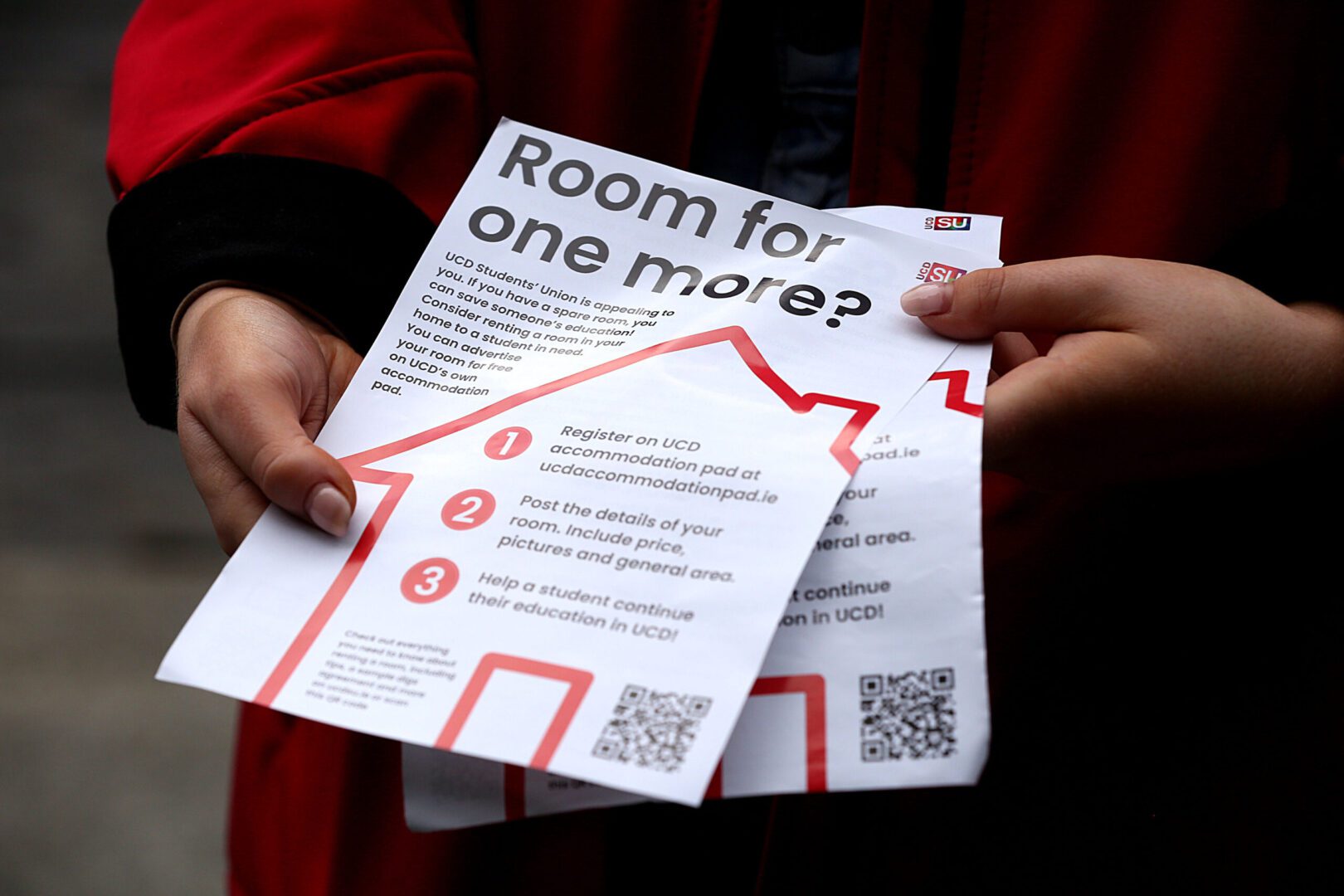On 22nd August, the UCDSU launched the Digs Drive asking homeowners that are close to UCD or on a good transport route, to offer rooms to UCD students. The purpose of the Digs Drive is to combat the chronic accommodation crisis which the UCDSU notes puts students’ education and participation in on-campus activities at risk.
The accommodation crisis is not a new phenomenon but is being aggravated. The lasting impact of COVID-19, an influx of Ukrainian refugees and a delay with CAO placements means students settle for less than ideal accommodation. The precarious rental market leaves students with little choice but to pay exorbitant prices or live so far that commuting takes hours.
UCDSU Welfare Officer, Míde Nic Fhionnlaoich, notes that in last year’s accommodation survey, “a quarter of respondents who commute were travelling over an hour both ways to get to college” with some students “making a four hour round trip everyday.”
As a solution, the UCDSU seeks to encourage homeowners to avail of the Rent-A-Room Relief Scheme through the Digs Drive and register through the UCD Accommodation Pad. The UCD Accommodation Pad connects UCD prospective and current students to approved homeowners who are in a position to rent rooms. The UCD Accommodation Pad connects UCD students to approved homeowners who are in a position to rent rooms.

Over three days, the sabbatical officers handed out leaflets at LUAS stations to catch commuters on their way to and from work. The leaflets include the steps to register on UCD Accommodation Pad, a letter from the sabbatical officers and a scannable QR code that leads homeowners to further information about renting a room.
Digs are understood to not be an ideal form of accommodation and as UCDSU President, Molly Greenough, states “is only a band-aid for a much bigger problem.”
According to Greenough, the UCDSU chose to focus on helping students find accommodation through Digs because they felt a need “to do something that would make a material difference in the immediate terms.” Greenough mentions that “the focus to-date on the Rent-a-Room Relief Scheme has been on the amount of money that a homeowner can earn” and that the UCDSU hopes to “redefine the conversation about Digs arrangements.”
There is little formal regulation surrounding Digs making the possibility of exploiting the scheme and scams more likely. Recognising the issue, the UCDSU offers a draft lease agreement to attempt to balance the homeowners’ and students’ interests.
From 22nd August to 24th August the UCDSU distributed 3,000 leaflets resulting in 150+ additional rooms added to the UCD Accommodation Pad. Greenough notes the overall response has been positive with the Drive starting a public conversation about what constitutes a fair arrangement in terms of cost and access to the housing in question.
Greenough, speaking on behalf of the sabbatical team, states that success for the Digs Drive means that “if a few days of outreach can garner a few hundred extra beds then it should spur everyone with the capacity to make a difference into action.”
The UCDSU provided an additional 20,000 leaflets to a courier who will deliver them to areas around UCD.
More information about the Digs Drive 2022 and UCD Accommodation Pad can be found in the following links:
Digs Drive Information: https://www.ucdsu.ie/accommodation-info
UCD Accommodation Pad: https://www.ucdaccommodationpad.ie/Accommodation
All images courtesy of John McElroy.
Danielle DerGarabedian – Editor

